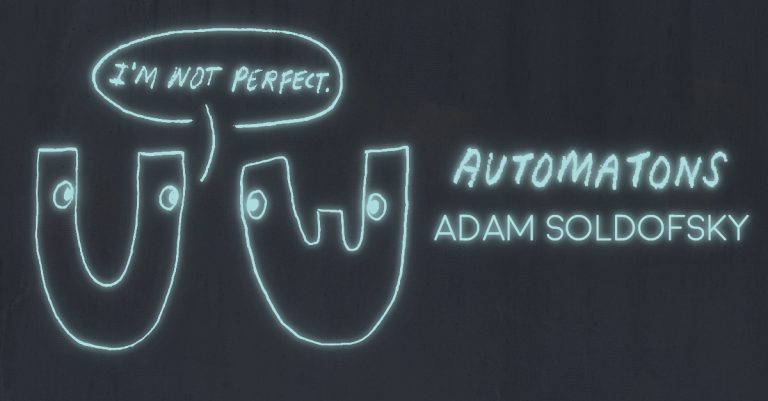
Archives

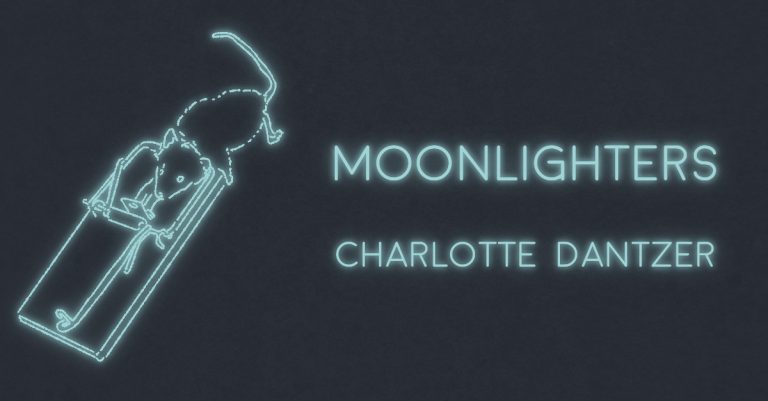
MOONLIGHTERS by Charlotte Dantzer
I breathed in the piss scent of the alleyway through the black knit. Then my face emerged from beyond the shirt, and I stood facing the dead end of the alley holding my breasts with one forearm.
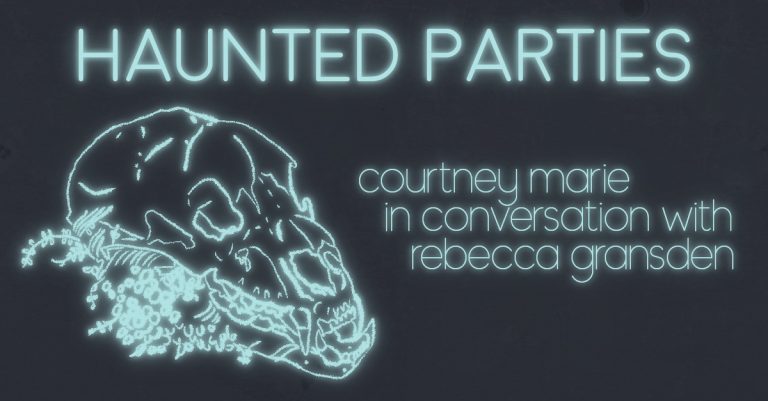
HAUNTED PARTIES: courtney marie in conversation with Rebecca Gransden
i thought i was prepared for friends and strangers to be able to glimpse some of my innermost thoughts, but sometimes i get a wave of anxiety: is it too much?
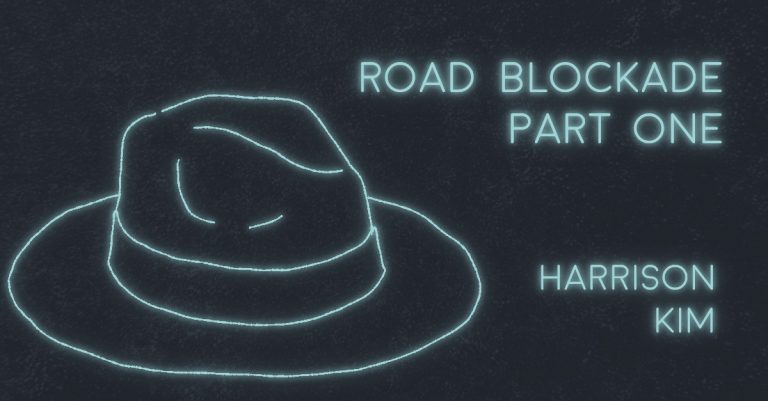
ROAD BLOCKADE PART ONE by Harrison Kim
She rode her pony here and he stinks like old socks—there’s no bond better than between a woman and her pony. I note she wears striped leotards right up to her loincloth.
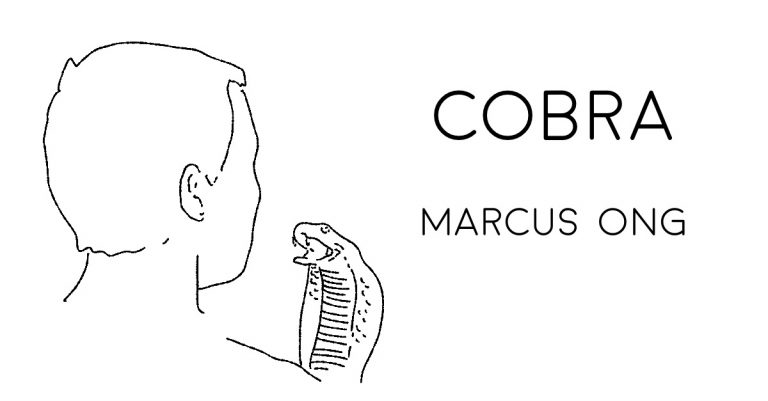
COBRA by Marcus Ong
At two in the afternoon, she hears a bang like a gunshot. Eugenia peeks out her bedroom window. What’s visible to her: the Tangs’ barbecue pit, their garden shed, their kidney-shaped pool. She counts dead oval leaves trapped on the water. Must be the Tang brothers lighting firecrackers behind the shed again, she thinks. They’re always plotting to give the birds a heart attack. Forefingers stuffed in her ears, she wonders why the brothers aren’t studying, and from where do they get their sadistic toys? But if the Gohs across the street managed to smuggle in flamingos to chain to
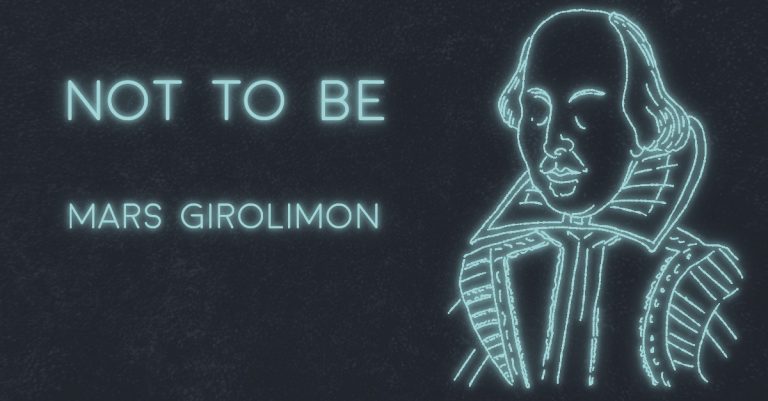
NOT TO BE by Mars Girolimon
I’m in class reading Hamlet and contemplating suicide on a cliffside. Reciting poetic verses about family curses and hiding behind a curtain with a knife. My phone buzzes, and I lean forward to read something out of a Shakespearean tragedy. She killed someone. The words glow like the flame of a lit match and I spring from my desk chair, repelled by their heat. Faces swivel toward me, judgement radiating from their eyes. I’m an injured animal at the center of a swarm about to be mauled by my own pack. My heartbeat radiates in my ears: glove to a

BRIAN ALAN ELLIS on film with Rebecca Gransden
What film, or films, made the first deep impression on you? My aunt and uncle on Long Island, for whatever reason, had a big-box VHS copy of I Spit on Your Grave in their collection, nestled somewhere between Stripes and Mr. Mom. I never asked about it, or even watched it, but it always kind of confused me. I thought it was a porno or something. I finally ended up watching I Spit on Your Grave as a teenager, which made me thankful that I didn’t watch it as a child, though I did accidentally catch A Clockwork Orange on
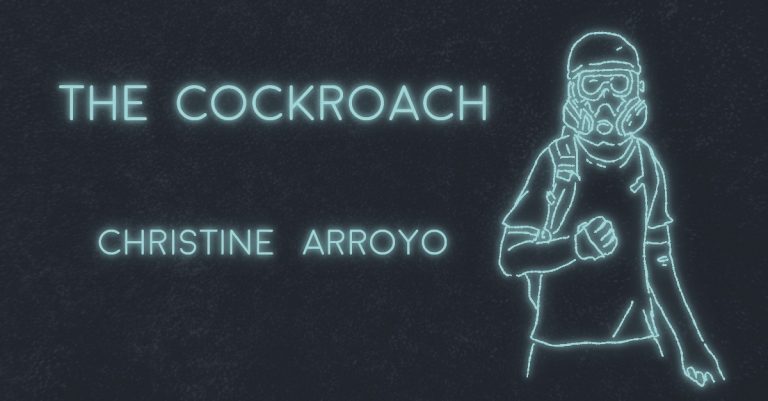
THE COCKROACH by Christine Arroyo
She woke up in a classroom. Chalkboard at her head, corkboard at her feet. As she adjusted to the dusk light—was it 5 a.m. or 5 p.m.?—she discovered she wasn’t in the setting of a recurring dream she’d been having. The ‘I fell asleep at the desk and missed the most important test of a lifetime’ dream. No, she was in a hotel room. The Eaton. The card pinned to the corkboard wall held her personalized key to the rooftop gym. As she pressed her body against the hotel room window, the humidity moved through the glass and brushed up
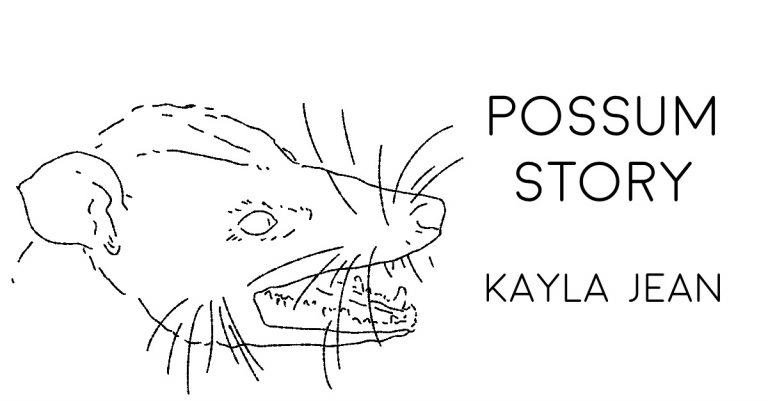
POSSUM STORY by Kayla Jean
We were going to scrape that possum off the road because somebody had to do it. That’s what our Dads said, trucks rattling in neighboring driveways, complaining about the borough workers, asking nobody in particular where their taxes went, if not to cleaning up a dead possum right in the middle of the intersection. The Biology teacher had even joked about dissecting it for class, because it was the intersection right next to the high school and so every student and every teacher saw it, curled up and still in the mornings then somehow more freshly dead in the afternoons.
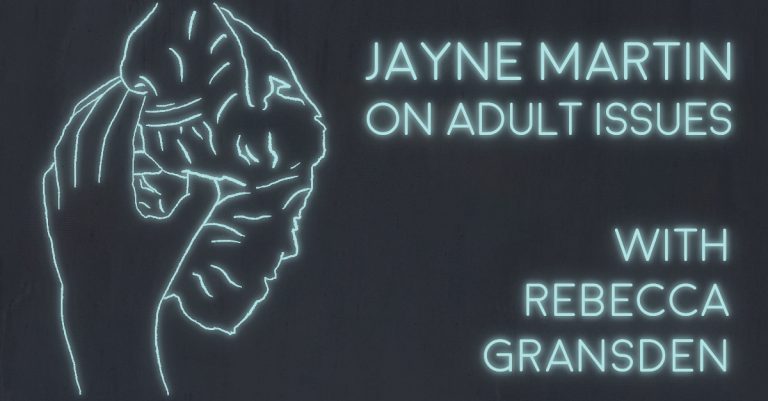
JAYNE MARTIN ON ADULT ISSUES with Rebecca Gransden
With The Daddy Chronicles (Whisk(e)y Tit Books, 2022), Jayne Martin returns to bruised memories. The book is driven to explore how recollection takes form, fragments made vivid, torn from deep wells and thrust into an attempt at order, a chronology, a way to make sense of an absent father. This absence dominates, and is bitterly ever-present. Martin strives to confront the irony in this, and with this collection of memory vignettes, reframes her past. When did you first have the impulse to tackle this subject? Was the form of the book apparent from the start? The book just erupted from
